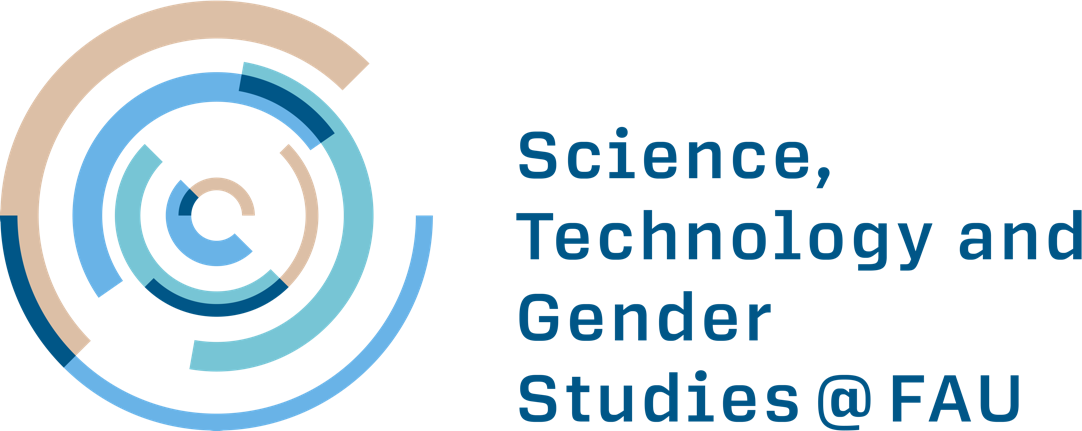Media
Humboldt & STGS Network Meeting – The Aftermovie
On 21.11.2024, Humboldt Fellows and STGS members gathered in Erlangen as part of the Humboldt Stiftung’s visit to Erlangen and FAU. This aftermovie captures the highlights of this great event.
Introducing STGS, 2024-2025
This is a brief introductory video of us at STGS, working in the chair during the period 2024-2025.
An Introduction to Science and Tech Diplomacy: the new Geopolitics of Technology (STGS@FAU)
We are celebrating the one-year anniversary of our international hybrid course: Introduction to Science and Tech Diplomacy: the New Geopolitics of Technology. With 45 students and professionals from 16 countries and from almost all disciplines and levels, the course was the first of its kind in the German educational landscape.
The Entanglement of Fashion and Physics – Created by Students of ‘How Does Gender Shape Science?
We are happy to announce the first STGS-Student video project! The project was part of an advanced seminar held as part of a co-op by Prof. Dr. Maria Rentetzi and Prof. Dr. Giesel at the Department of Physics in the summer semester of 2024, titled „How Does Gender Shape Science? The Intermingling of Gender and Natural Sciences in Historical Context.“ The seminar reflected on the history of physics from the perspective of the history of science and gender studies. In this context, the interdisciplinary students created their own research projects based on the methods of qualitative and quantitative social research.
A gift or a trojan horse ?
As part of our commitment to break down the solid boundaries between academia and public audiences, this is the first video in our ERC funded series on the public history of radiation protection. Historian of nuclear science, Maria Rentetzi, explains her research on how two mobile radioisotope laboratories were offered as gifts to the International Atomic Energy Agency (IAEA) by the United States. The two mobile laboratories represent an important stage in the early development of the IAEA. Yet, they also demonstrate how a scientific artifact can play a major role in shaping scientific standardization processes and creating diplomatic ties and dependencies. The video shows the journey of the two mobile laboratories around the globe in the early 1960s and the historical context of the Cold War in which they emerged.
Transnational History Lab (A mini-documentary)
This is the mini-documentary of the international winter school ‘Transnational History Lab’ that took place from 5th to 10th February 2024. In this documentary, we interview the organizers, some of the participants and invited speakers. We ask them the following questions: 1 – Why did you organize the school ? (to the organizers) 2- Why are you here ? (the participants and invited speakers) 3- What stood out the most for you in the school ? 4- As an expert, What did you bring at the table for the school ? 5- Any final remarks and feedback ? This aims to document the events and impressions of a highly successful gathering, facilitating an open exchange between young and senior scholars, with the objective of advancing the studies on transnational history. Funded and supported by Volkswagen Stiftung.
Transnational History Lab (after movie)
This is the after movie of the international winter school ‘Transnational History Lab’ that took place from 5th to 10th February 2024. The movie aims to provide general impressions and document the events of a highly successful gathering, facilitating an open exchange between young and senior scholars, with the objective of advancing the studies of transnational history. Funded and supported by VolkswagenStiftungHannover.
Seduced By Radium by Maria Rentetzi – Book Trailer
This is the official boor trailer of Seduced By Radium, written by professor Maria Rentetzi, published by the University of Pittsburgh Pres.
Diplomacy in the Time of Cholera
While keeping your distance has become the order of the day, it is also for sure that the only way to deal with the pandemic is through solidarity and cooperation of local governments and international health organizations. However, the different handling of an unprecedented situation has also revealed one thing: how controversial the mixing of scientific and diplomatic matters can be. Because in fact the World Health Organization (WHO) was and is exposed to great criticism for its handling of the crisis.
2021 Gordon Cain Conference
The 2021 Gordon Cain Conference focuses on the fascinating interplay of science, technology, and international affairs after the Second World War. By doing so, it marks the emergence of diplomatic studies of science as a field at the intersection of science and technology studies, history of science, diplomatic history, and international politics.
Professor Maria Rentetzi has been named the 2021 Gordon Cain Conference fellow. Together with the Science History Institute she invites contributions that explore the ways science and diplomacy have been coproduced throughout the second half of the 20th century to the present.
The Box: Commonplace Artifacts in the Production of Scientific Knowledge
The video was presented during the 2015 Annual Meeting of the Society for Social Studies of Science (4S), November 11-14, Denver Colorado where I organized a special session entitled The Humble Box: Materiality in Science, Technology, and Medicine
Video: Andreas Economakis; Text editing: Spyros Petrounakos.
Tobacco. 101 notes on oriental tobacco
The video accompanied the exhibition Tobacco | 101 notes on oriental tobacco which took place at the main Building of the Benaki Museum in Athens, Greece, from 11/06 to 31/08/2014.
Curator: Spiros Flevaris; Historical advisor: Maria Rentetzi
Video: Andreas Economakis; Voiceover: Aristides Baltas; Text editing: Spyros Petrounakos
